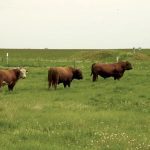Reproductive diseases that cause abortions or leave cows open can take a big chunk out of your bottom line. It’s something Dr. Cheryl Waldner has spent a lot of time looking into. Waldner is chair of One Health and production-limiting diseases at the Western College of Veterinary Medicine, and in this interview, she discusses everything […] Read more












